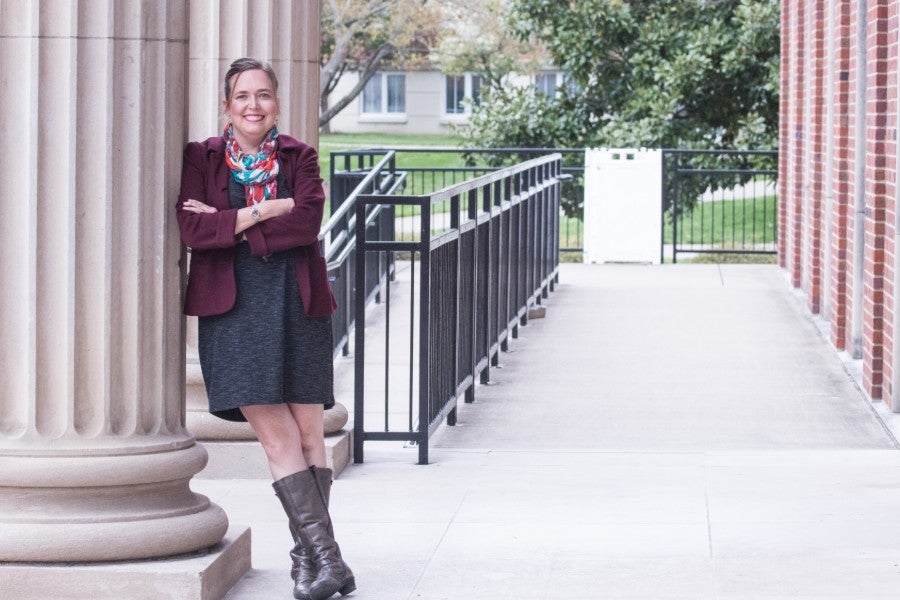Lipscomb community hears from expert on science and faith
Elaine Howard Ecklund communicates the relationship between faith and science with students and faculty
Anna Moseley |

Elaine Howard Ecklund is a professor of sociology at Rice University.
Science and faith are often thought of as two clashing subjects, but after dedicating much of the past decade to research, Elaine Howard Ecklund firmly believes they can coexist in the public sphere without any conflict.
Ecklund, a noted researcher on the subject of faith and science, was a guest lecturer at Lipscomb University on Wednesday and Thursday, hosted by the Alpha Chi Honor Society, College of Liberal Arts and Sciences and McClure Professorship of Faith and Science.
Inspired by a parent’s concern that scientists at an Ivy League university might cause her child to lose faith, Ecklund, the Herbert S. Autrey Chair in Social Sciences, professor of sociology and director of religion and public life program at Rice University in Houston, decided to study the relationship between faith and science and to tackle the common stereotypes about the two subjects.
She is the author of five books, including Science vs. Religion: What Scientists Really Think, more than 60 peer-reviewed research articles and numerous op-eds.
“I think the best sociology helps us understand to what extent our personal stories are typical,” said Ecklund. “How do we fit into the social group of people like us. As a sociologist, I am trying to understand on a wider basis, what scientists think about religion.”
She also relayed the significance of studying religious identity, even for those who are not religious.
“I want to try and convince you, in the time that we have together, that religion and science are important in public life,” said Ecklund. “The connection between religion and science is very important for Christians to think about and reflect on.”
In an evening lecture and a chapel talk for students, Ecklund shared the public misconceptions on the relationship between science and religion and how those misconceptions can impact various areas of the public sphere.
“Misconceptions can impact whether a parent encourages a child to take science classes or whether a child pursues a science or technology occupation,” said Ecklund. “They affect how a scientist interprets the morality of certain scientific technologies, who individuals vote for and in turn, the public’s financial support for scientific research.”
Because these misconceptions can cause consequences in public and social life, providing a space for science and religion to simultaneously exist, such as in the way Lipscomb does, allows people to challenge those faulty conclusions, said Ecklund.
“You are in this very special space at Lipscomb where you can talk very openly and are even encouraged to talk about the connection between science and faith,” she said.
Ecklund said she was impressed to learn that Lipscomb students have a selection of courses available to them, such as the Integration of Science and Faith course, that are cultivating the space for them to talk openly about both science and faith.
“What would it mean for church communities to see science as a form of calling,” asked Ecklund. “How can institutions of higher education empower faith leaders to focus on the scientists in their midst to potentially be engaged in the support of scientific work, to encourage discussions in churches and other types of religious organizations?”
African American and Hispanic populations are underrepresented in scientific fields and are often overrepresented in church communities, said Ecklund.
“We have moral responsibilities to break down structural barriers and further provide access to science and science education,” she said. “Scientists and Christians need to join together in this effort.”
Ecklund received her Ph.D. from Cornell University in 2004, her master’s in sociology in 2001 and bachelors in human development in 1995 from Cornell University. Ecklund currently teaches classes at the graduate and undergraduate levels on research methods, immigration, sociology of science, classical sociological theory and the sociology of religion at Rice University.